Nicola Sturgeon has ‘wholeheartedly apologised’ for historical gay sex convictions
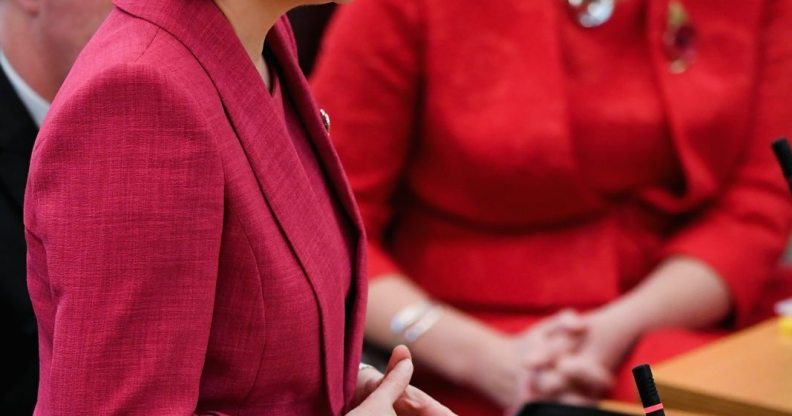
Sturgeon apologises (Jeff J Mitchell/Getty)
Scotland’s First Minister Nicola Sturgeon has “categorically, unequivocally and wholeheartedly” apologised for laws which criminalised gay sex.
Her speech came on the same day that a bill was introduced which will automatically pardon gay and bisexual men convicted under historical laws.
The legislation was pledged by Sturgeon in September when she presented her programme for government.
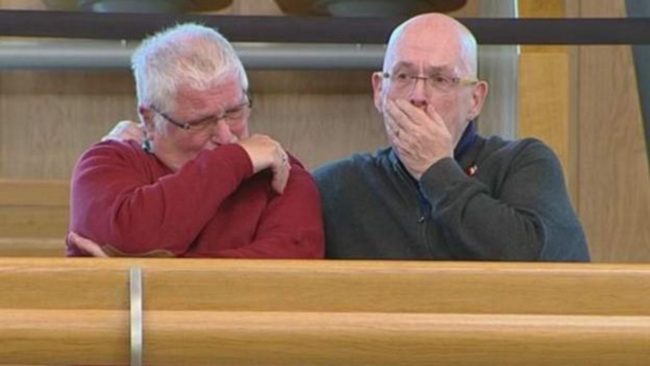
Two men in Parliament react (Facebook/Nicola Sturgeon)
The pardon does not wipe convictions under these laws from criminal records, but Scots will be able to apply for the removal of these convictions.
The move comes after thousands of men in England and Wales were pardoned following the introduction of the Turing Law earlier this year.
In England and Wales, people celebrated the 50th anniversary this year of the partial decriminalisation of gay sex, but Scottish gay and bi men had to wait another 14 years after 1967.

(Getty)
Consensual gay sex was only decriminalised in 1981 in Scotland, and gay and bi men had to wait until 2001 for the age of consent to be 16 – the same as straight couples.
The issue was raised by former SNP deputy leader Angus Robertson at the 2016 PinkNews Awards.
Sturgeon said: “Today as First Minister I categorically, unequivocally and wholeheartedly apologise for those laws and for the hurt and the harm that they caused to so many.
“Nothing that this Parliament does can erase those injustices, but I do hope this apology, alongside our new legislation, can provide some comfort to those who endured those injustices.
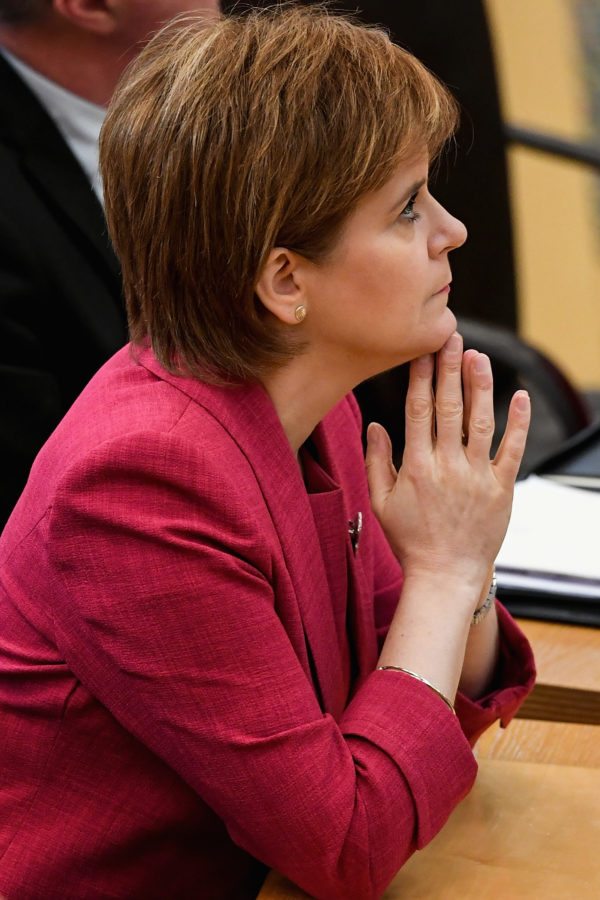
(Getty)
“And I hope that it provides evidence of this Parliament’s determination in so far as we can to address the harm that was done.”
Justice Secretary Michael Matheson said: “These discriminatory laws, although abolished, continue to have implications for people to this day and it is only right that we address this historic wrong, which criminalised people simply because of who they loved.
“I am pleased to introduce this bill, which is an important step towards correcting that injustice.”
Kezia Dugdale, who was the Scottish Labour Party’s leader when the introduction of this legislation was announced, planned to say in Parliament today that “apologies in this place are often offered through gritted teeth”.
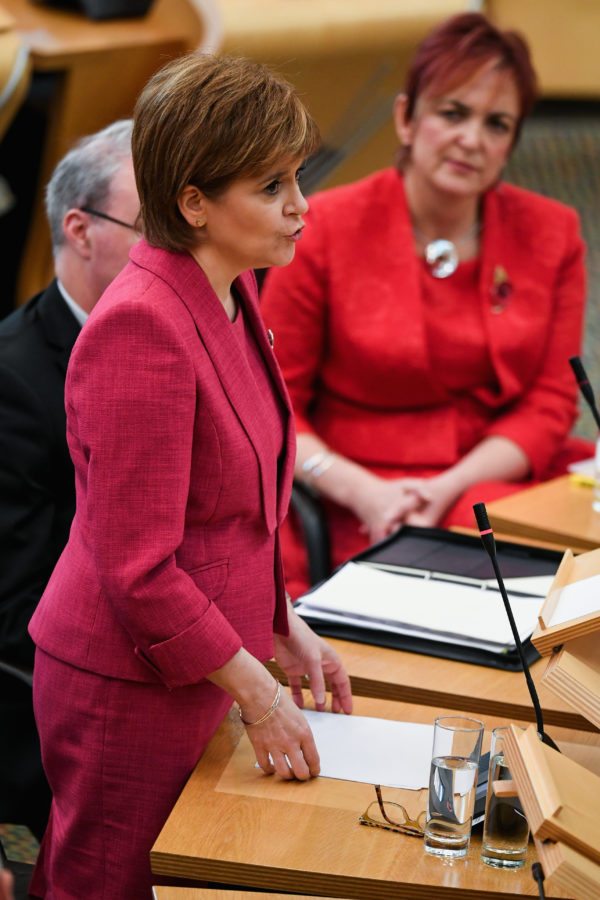
(Getty)
She added that they often “follow a period of acrimony where one party has actively pursued and proven a mistake or a flaw, a diversion or hidden truth – even a scandal.
“This apology is very different. It’s offered with warmth and in the spirit of love and inclusion.
“It takes a deep breath and a big heart to say sorry for mistakes of the past.
“An even bigger heart when those errors are not your own.
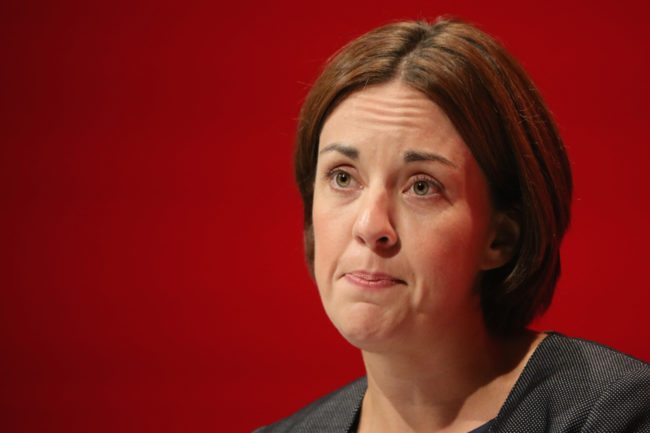
(Getty)
“So I offer the congratulations and gratitude of these benches to the government for stepping up and saying sorry today.”
She pointed out that while “it has never been a crime for two women to be together,” that doesn’t mean women who have sex with women haven’t been on the receiving end of discrimination.
“The history books teach us that lawmakers did try, in fact the House of Commons passed an amendment in 1921 to make sex between two women illegal but it was rejected by the House of Lords – because they didn’t want ordinary women to know that such a thing existed,” she said.
“Very often women had to pass as men to live their lives and if they were caught, they were sometimes convicted of fraud.
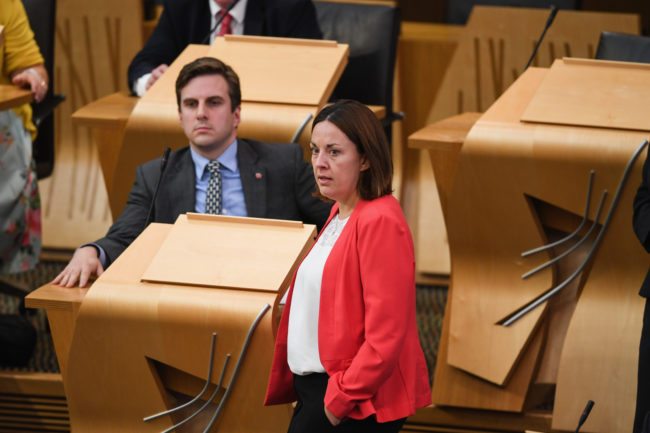
(Getty)
“Most were not criminalised for their love of each other, but they were still punished. They were both invisible and demeaned.
“Ostracised from their communities and families. Punished and painted out of history.”
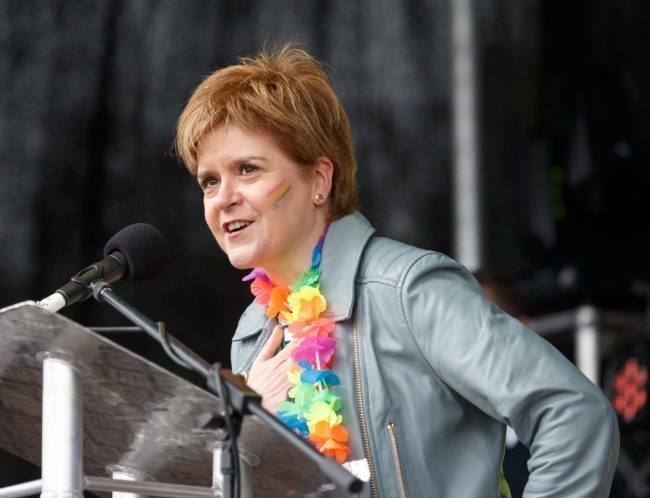
(Getty)
Tim Hopkins, director of the LGBT charity Equality Network, said: “This very welcome bill will be of direct importance to hundreds of people with past criminal convictions for the kinds of relationships that were perfectly legal for their heterosexual friends.
“More widely, it is a clear statement that Scotland considers the discrimination of the past to be wrong and unacceptable, and now understands LGBTI people to be equal citizens who deserve equal respect.”

